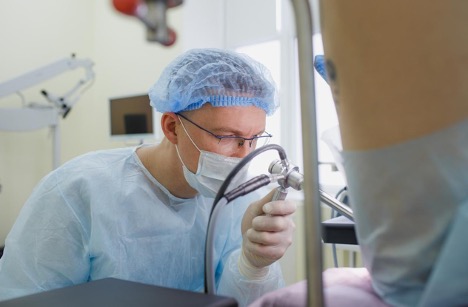
Rectal cancer, a malignant growth originating in the cells of the rectum, is among the most common forms of cancer in the United States. According to the American Cancer Society, new rectal cancer cases as of 2023 are 46,050, affecting men and women.
When dealing with rectal cancer, there are different types of treatment for rectal cancer. The options may vary depending on its size, location, family history, and overall health.
Work with a specialized medical team to find the right combination of treatment plans to combat rectal cancer and regain your health. Read this article to learn what the types of treatment for rectal cancer are.
Early detection of rectal cancer increases your chances of successful management and cure. The process starts with a thorough medical history and physical examination, during which your doctor will ask about your symptoms, risk factors, and family history of cancer.
Your healthcare provider will use the following diagnostic methods to identify and assess rectal cancer.
With advancements in medical technology and a multidisciplinary approach, doctors are better equipped to accurately diagnose rectal cancer, allowing you to start on a journey toward effective treatment and improved quality of life.
Understanding the stages of rectal cancer is crucial for you and your healthcare team as it guides treatment decisions, prognosis assessment, and overall disease management. The staging of rectal cancer is based on the TNM classification system, which evaluates three key aspects of the disease:
Using the TNM classification, the stages of rectal cancer are defined as follows:
Localized therapies such as surgery and radiation can successfully treat early-stage cancers (Stages 0 and I). Advanced stages (Stages III and IV) may require a combination of treatments, including surgery, chemotherapy, radiation, and immunotherapy.
If you have a positive rectal cancer result, treating it will involve different approaches to effectively target the disease and enhance your outcome. Here are three significant treatment modalities;
For localized tumors–those that have not spread beyond the rectum, your doctor can successfully treat them with surgery. Some of the surgical techniques include;
Surgery will help remove the cancerous growth. Your doctor will remove the cancerous part along with some healthy tissues to ensure complete eradication.
Chemotherapy uses drugs to destroy cancer cells or stop their growth. Your doctor can administer chemotherapy before or after surgery, individually or combined with other treatments.
Before surgery, you may receive neoadjuvant chemotherapy to shrink the tumor for easy removal. After surgery, your doctor can administer adjuvant chemotherapy to eliminate the remaining cells and reduce the risk of recurrence.
If cancer has spread to the liver–beyond the rectum, your doctor may recommend systemic chemotherapy. It targets cancer cells throughout the body using oral medication or intravenous infusions.
This rectal treatment technique uses high-energy rays to target and destroy cancer cells. Your healthcare team can use it before or after surgery to reduce tumor size, improve surgical outcomes, or eliminate remaining cancer cells.
External beam radiation delivers focused radiation from outside the body, while internal radiation(brachytherapy)places a radioactive source close to the tumor.
The treatment choice depends on your cancer stage, overall health, and preferences. Your oncologists and other multidisciplinary teams may settle on other options like radiofrequency ablation (RFA) and cryotherapy. These are minimally invasive techniques that use extreme temperatures to destroy cancer cells–RFA uses heat, and cryotherapy harnesses cold.
Another option is immunotherapy, where your body’s immune system is enhanced to recognize and attack cancer cells. Also, using monoclonal antibodies to bind specific proteins on cancer cells can disrupt their growth and signaling.
For elderly patients, doctors may consider watchful waiting or active surveillance. The healthcare team assigned to the patient will monitor the cancer without immediate intervention; if the cancer grows, doctors can start treatment later.
Allied Digestive Health is a multi-specialty group offering comprehensive care and support in gastrointestinal health. With a team of experienced nutritionists, gastroenterologists, and healthcare providers, we are committed to providing personalized solutions that address a wide range of digestive concerns.
Whether you need routine check-ups, advanced treatment, to learn more about rectal cancer, or expert advice to maintain a healthy gut, contact us today and schedule a consultation.
For Your Visit
Great Neck
P: 516-487-7677
F: 516-487-2868
310 E. Shore Rd.
Suite 206
Great Neck, NY 11023
Office Hours
Mon. 9:00 AM – 5:00 PM
Tues. 9:00 AM – 5:00 PM
Wed. 9:00 AM – 5:00 PM
Thurs. 9:00 AM – 5:00 PM
Fri. 9:00 AM – 5:00 PM
Sat & Sun: Closed
© All Rights Reserved

Thank you for your interest in setting up an appointment with us! To schedule your visit, please give us a call. We look forward to assisting you!